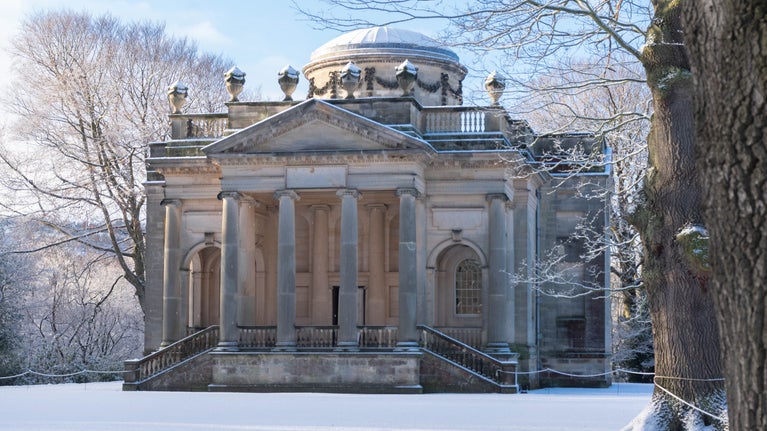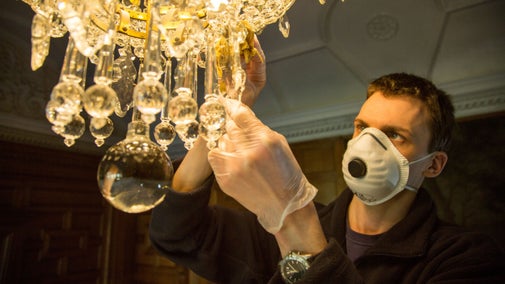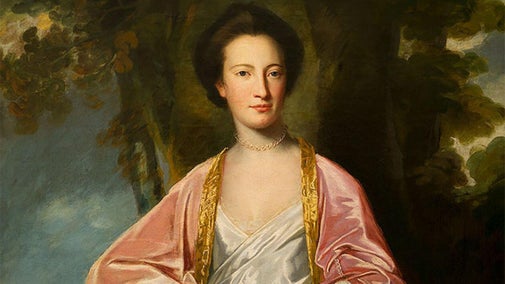
Start your journey of discovery
Delve into history, get tips from our experts, learn a new skill and go behind the scenes of your favourite places.

Find out more about people from the past, discover remarkable art and collections and brush up on your knowledge of architecture and gardens.
Wassailing is a Twelfth Night tradition with pagan roots, which aims to ward off bad spirits and ensure a good harvest the following season. Learn more about the tradition and its celebrations, which include music, song and dance.

Tea first arrived in Britain in the mid-17th century, when it was so expensive that only the incredibly wealthy could afford it. Find out the connections that the places in our care have to this simple brew.

Learn how to clean your house with tips and tricks from the National Trust experts who maintain and conserve historic houses and their contents.

Discover the different eras of British history through the archaeological artefacts and sites in our care. From stone circles in the Prehistoric Era to military remains of the 20th century, learn more about our ancestors and Britain's past.

Delve into one of the world's greatest collections of art and historical objects. From paintings to sculptures, there’s something for every art lover to discover.
We look after the largest collection of tapestries in the UK and one of the largest in the world. Learn more about these status symbols and explore some of the best examples of this craftmanship at the places in our care.

Explore the artworks in our collections that capture the beauty of sunrise and sunset. See how artists have used seascapes and sunlight to bring to life peaceful scenes and industrial backdrops alike.

Explore a selection from more than half a million books and manuscripts in the collections we care for. Libraries Curator Tim Pye takes a closer look at some of the most significant works.

Discover highlights from our collection of around 75,000 ceramic objects, from an early Ming dynasty dish to an ancient Greek hydria.

Read the stories of people from history and learn about their connections to the historic places in our care, from Beatrix Potter to the Beatles.
Many of the places and collections we care for tell the stories of disabled people throughout history. Learn more about the people behind these connections.

Learn how William Morris, founder of the Arts and Crafts movement, brought the natural world indoors with his wallpapers and textiles, which are still instantly recognisable today.

Learn about the remarkable women in history linked to the places in our care, from the political player who helped make Charles II king, to the archaeologist who discovered a 7th-century Saxon ship burial.

Read up on architecture with in-depth articles about architectural styles, interior design through history and architectural structures.
As fashions change over the eras, so do our homes. Explore the history of British interior design and learn about the centuries of design innovation at the places we care for.

We care for around 170 war memorials, with about 70 of those from the First World War. Discover the stories behind the monuments and find out where you can find them.

Learn how the Gothic style became popular in the 18th and 19th centuries to style literature, architecture, art, music and more after the features of the late medieval Gothic period.

Discover the history of the natural landscapes around you. From glasshouses to sunken lanes, understand more about how these gardens and green spaces were formed.
Discover some of the finest historic gardens in our care and how they were shaped by Victorian plant collectors, as they gathered plant species from across the globe.

Explore how changing tastes influenced the style of gardens over the centuries and discover where you can find the best examples from each period at the places we care for.

Find out more about the picturesque aesthetic style and how it became a fashionable choice for wealthy estates in the 18th century. Learn more about the people who influenced the movement.


Delve into history, get tips from our experts, learn a new skill and go behind the scenes of your favourite places.